Security as a service, or SECaaS, allows growing companies to delegate their security to an outside company, freeing up their in-home resources while still receiving a high-level, scalable cybersecurity solution.
But what exactly are the SECaaS model and its benefits for entrepreneurs?
What is the Security as a Service (SECaaS) model?
With the reported number of cyber crimes increasing by more than 300% since the start of the global pandemic, companies have never been at such a great risk of security breaches and data leaks. While working remotely, employees are at a much greater risk of cyber attacks, with over 40% of them in the US and the UK falling victim to phishing attempts and serious security mistakes that could endanger the entire company.
While some blame the employees for acting carelessly, it’s important to understand the underlying causes for this increase in security vulnerability. Working in times of the COVID-19 pandemic is stressful, with workers being fatigued and distracted more than ever. While employee training and spreading awareness can certainly help, companies need a reliable solution to cybersecurity threats.
The Security as a Service model (SECaaS) rose to popularity as an answer to the rising threat of cybercriminals, offering companies of all sizes scalable security solutions that don’t require heavy investment in expensive hardware and constant at-location maintenance. The services are instead delivered over the Internet, very often using advanced cloud technology that’s easy to integrate and highly scalable.
The key features of Security as a Service solutions
As it turns out, outsourcing your security management services is often much more cost-effective than creating private infrastructure, especially for small and medium businesses that would otherwise require a heavy investment and constant maintenance. With a SECaaS service, businesses can receive a wide range of security services – according to the Cloud Security Alliance, there are several categories of Security as a Service, including:
- Network security
- Web security
- Prevention of data loss
- Continuous monitoring
- Identity and Access management
- Business continuity and disaster recovery
- Email security
- Encryption
- Intrusion prevention and management
- Security assessment
- Vulnerability scanning
- Penetration testing
From allocating network resources and real-time protection of web traffic to advanced intrusion pattern recognition systems and access control, SECaaS solutions offer a variety of protection layers over a company’s resources, available for every device and user regardless of location and hardware.
Benefits and challenges of the SECaaS model
While small and medium companies often see the largest benefits from implementing the Security as a Service model, businesses of all sizes can profit from this framework. The most notable benefits of the SECaaS model include:
- Low investment and integration costs. No additional hardware or software licenses are required to use SECaaS services. You also won’t need a dedicated in-home IT team to perform maintenance and monitoring.
- Fast implementation. Most devices can be connected to a SECaaS service in a matter of minutes using a simple web-based application, offering instant access to remote workers from all over the world without downtime.
- High-level protection. Security solutions delivered over the cloud provide companies with a range of protective measures and constant access to on-the-fly updates and new virus definitions without any user input necessary.
- Saving company resources. With access to cloud-based SECaaS tools, companies don’t need dedicated security experts and analysts, and most administrative tasks like log management are outsourced.
- Easy to use interface. Most SECaaS services are accessible with a simple web interface that provides an appropriate access level for each user. All activity can be constantly monitored using an intuitive UI with access to detailed security reports.
As with every security model, SECaaS also comes with its own set of challenges. If the provider’s SECaaS server is compromised, this potentially leaves all its clients vulnerable to the attacks. Vendors need to implement extreme security measures to prevent that from happening, making choosing a reliable and competent SECaaS vendor essential.
Who can benefit from adopting SECaaS?
While all of the benefits of SECaaS services can be achieved locally, this would require a huge investment of time and resources – a fundamental restructuring of company IT infrastructure for most businesses. Small and medium businesses often can’t afford such an expensive change, leaving them with low-level security measures that are vulnerable to outside interference.
Implementing the SECaaS model offers small and medium companies a scalable solution that’s tailored to their needs. With a subscription-based model, businesses pay exactly for the functionality they need and nothing else, without heavy investments in experts, hardware, and licenses.
FAQ
Reliability, flexibility, and offered capabilities are the most important characteristics of a good SECaaS vendor. Compare the services offered to the total cost of ownership and ensure your vendor offers proper reporting protocols.
No. Security is above all else education and proper implementation of corporate policy. Furthermore, specific security needs must be assessed for each individual client – still, SECaaS offers a comprehensive, all-round solution that can handle most of the cybersecurity needs of most businesses.
Security as a Service can protect devices and networks from virus attacks, malware, phishing attempts, ransomware, DoS and DDoS attacks, brute force attacks, data breach attempts, and many more cybersecurity threats.
